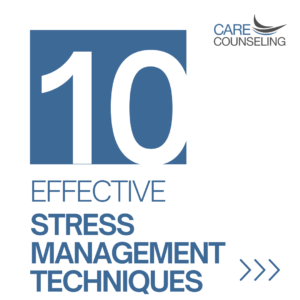10 Effective Stress Management Techniques for a Busy Life
 In today’s fast-paced world, juggling work, family, and personal life can often feel like a never-ending marathon. As the demands of our daily lives increase, so does the prevalence of stress. Chronic stress can take a toll on our physical and mental well-being, making it crucial to find effective ways to manage and mitigate its effects.
In today’s fast-paced world, juggling work, family, and personal life can often feel like a never-ending marathon. As the demands of our daily lives increase, so does the prevalence of stress. Chronic stress can take a toll on our physical and mental well-being, making it crucial to find effective ways to manage and mitigate its effects.
- Prioritize Self-Care
One of the most effective ways to manage stress is by prioritizing self-care. Allocate time for activities that bring you joy and relaxation, whether it’s reading, taking a bath, practicing a hobby, or simply enjoying a leisurely walk. Self-care is not selfish; it’s essential for your overall well-being.
- Mindful Breathing
Practice deep and mindful breathing to calm your nervous system. Try techniques like diaphragmatic breathing or the 4-7-8 technique. These exercises can help reduce anxiety and promote a sense of tranquility, even in the midst of a busy day.
- Exercise Regularly
Physical activity is a potent stress buster. Regular exercise releases endorphins, the body’s natural mood lifters. Incorporate activities you enjoy, whether it’s yoga, jogging, swimming, or dancing. Even short, daily walks can make a significant difference in managing stress.
- Time Management
Efficient time management can reduce the feeling of being overwhelmed. Use tools like to-do lists, calendars, and time-blocking techniques to prioritize tasks and allocate time for breaks. Avoid overcommitting and learn to say no when necessary.
- Healthy Eating Habits
A well-balanced diet can help stabilize your mood and energy levels. Opt for whole foods, rich in nutrients and antioxidants, and reduce the consumption of processed or sugary foods. Stay hydrated, as dehydration can exacerbate stress.
- Sleep Hygiene
Aim for quality sleep by establishing a consistent sleep routine. Create a comfortable sleep environment, limit screen time before bed, and avoid caffeine and heavy meals close to bedtime. A restful night’s sleep is essential for stress management.
- Practice Mindfulness and Meditation
Mindfulness techniques and meditation can cultivate awareness and reduce stress. Allocate a few minutes each day to practice mindfulness or guided meditation. These practices can help you stay grounded and centered, even when facing life’s challenges.
- Seek Support
Don’t hesitate to reach out to friends, family, or a therapist when stress becomes overwhelming. Sharing your feelings and concerns can provide emotional support and help you gain perspective on your situation.
- Set Realistic Goals
Set achievable goals and expectations for yourself. Unrealistic or perfectionist standards can lead to unnecessary stress. Break tasks into smaller, manageable steps and celebrate your achievements along the way.
- Disconnect and Unplug
In our hyper-connected world, it’s crucial to disconnect from digital devices regularly. Designate tech-free zones or times during the day to reduce information overload and promote relaxation.
A busy life doesn’t have to equate to constant stress. By implementing these ten effective stress management techniques, you can regain a sense of balance and calm in your daily routine. Remember that managing stress is an ongoing process, and it’s okay to experiment with different strategies to find what works best for you. Prioritizing self-care and seeking support when needed are key steps toward a happier, healthier, and more resilient you.



























